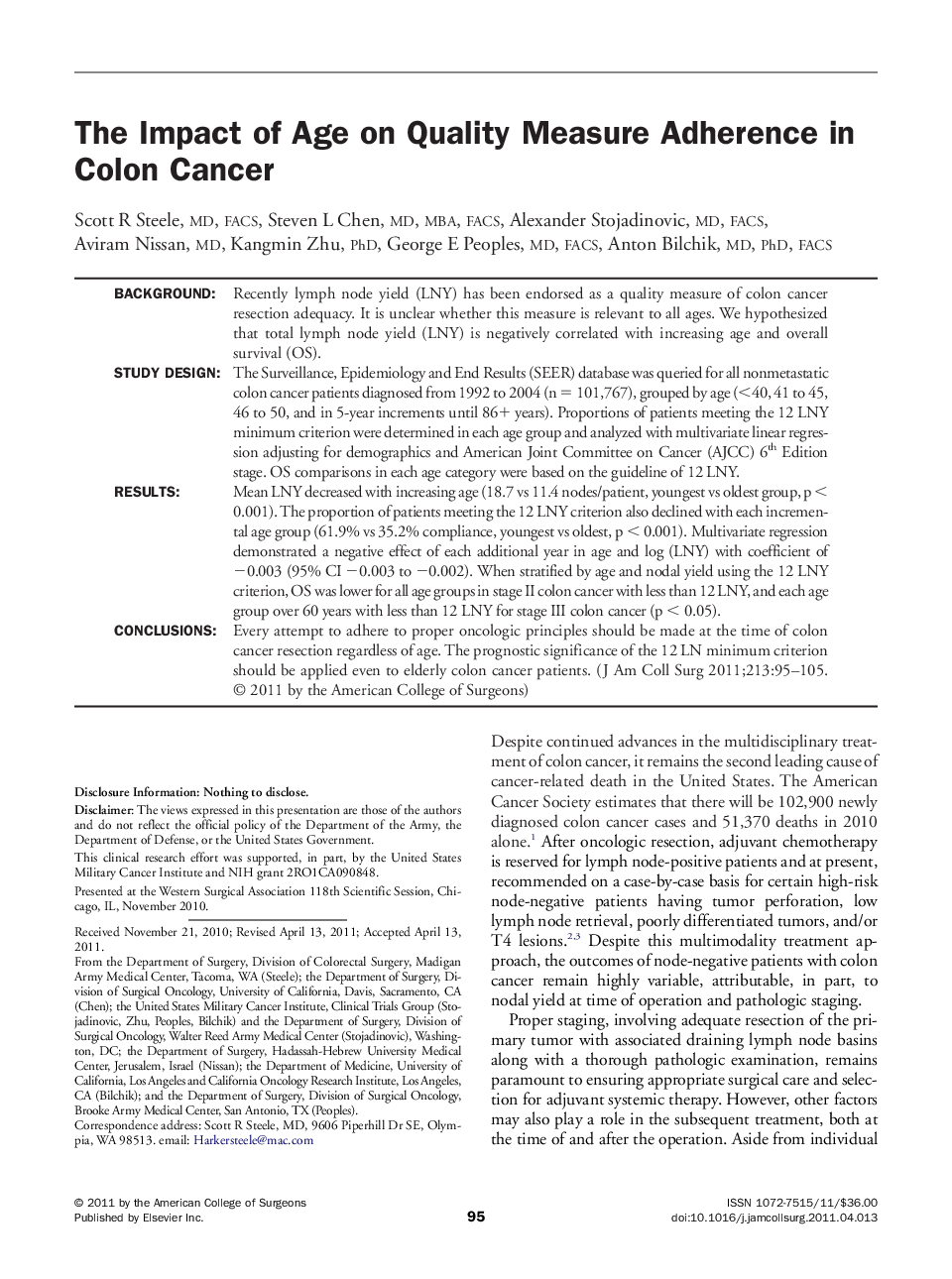| Article ID | Journal | Published Year | Pages | File Type |
|---|---|---|---|---|
| 4293001 | Journal of the American College of Surgeons | 2011 | 9 Pages |
BackgroundRecently lymph node yield (LNY) has been endorsed as a quality measure of colon cancer resection adequacy. It is unclear whether this measure is relevant to all ages. We hypothesized that total lymph node yield (LNY) is negatively correlated with increasing age and overall survival (OS).Study DesignThe Surveillance, Epidemiology and End Results (SEER) database was queried for all nonmetastatic colon cancer patients diagnosed from 1992 to 2004 (n = 101,767), grouped by age (<40, 41 to 45, 46 to 50, and in 5-year increments until 86+ years). Proportions of patients meeting the 12 LNY minimum criterion were determined in each age group and analyzed with multivariate linear regression adjusting for demographics and American Joint Committee on Cancer (AJCC) 6th Edition stage. OS comparisons in each age category were based on the guideline of 12 LNY.ResultsMean LNY decreased with increasing age (18.7 vs 11.4 nodes/patient, youngest vs oldest group, p < 0.001). The proportion of patients meeting the 12 LNY criterion also declined with each incremental age group (61.9% vs 35.2% compliance, youngest vs oldest, p < 0.001). Multivariate regression demonstrated a negative effect of each additional year in age and log (LNY) with coefficient of −0.003 (95% CI −0.003 to −0.002). When stratified by age and nodal yield using the 12 LNY criterion, OS was lower for all age groups in stage II colon cancer with less than 12 LNY, and each age group over 60 years with less than 12 LNY for stage III colon cancer (p < 0.05).ConclusionsEvery attempt to adhere to proper oncologic principles should be made at the time of colon cancer resection regardless of age. The prognostic significance of the 12 LN minimum criterion should be applied even to elderly colon cancer patients.
